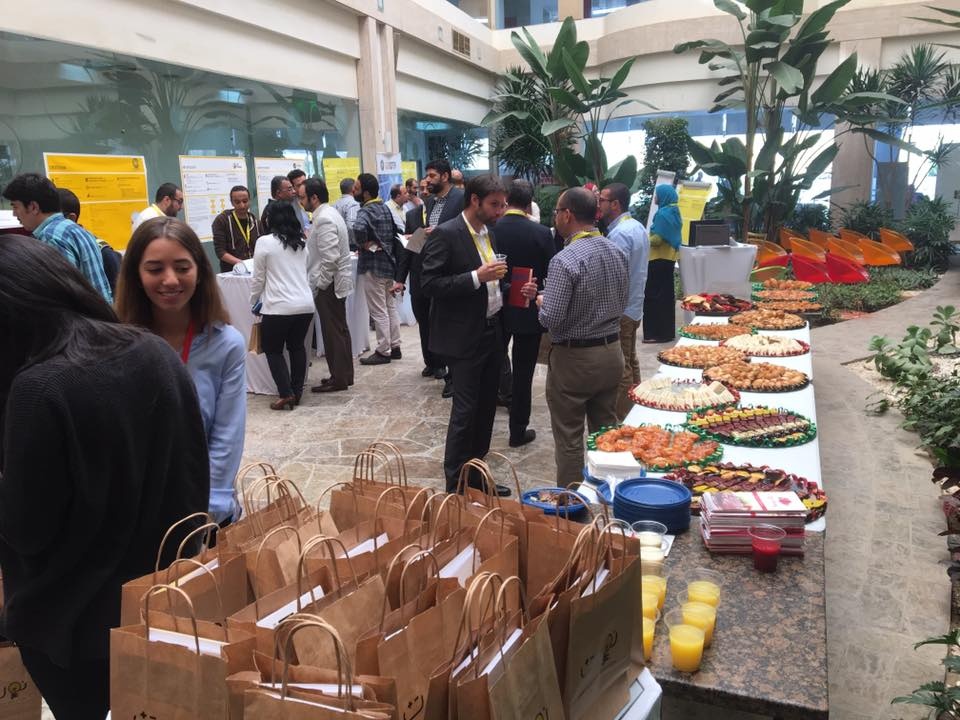Nawart's cleantech startups a silver lining for Egypt's transition

Egypt may have effectively killed off any interest in industrial scale solar, but a group of people passionate about the cause believe startups can revive the badly scarred sector.
On Thursday, Nawart, a cross disciplinary incubation project for small scale renewable startups founded in February, presented 15 projects it believes can play a part in reducing energy shortages and helping the country reach its clean energy targets, if given mentorship and support.
Those projects are from across the renewable spectrum, from biogas to solar street lighting, and selected to help them build the idea into a business with a functioning prototype.
So far there are three market ready prototypes out of the 15, including water pumping startup Sun City Energy and hybrid energy provider Taqa Gededa.
“These sort of ideas will make the difference, if we want to live in the best environment possible,” said PricewaterhouseCoopers (PwC) Egypt chairman Tarek Mansour.
Nawart is supported by Cleantech Arabia, PwC, the Ministry of Trade and Industry, and Responsible and Inclusive business Hub MENA (RIBH MENA).
Mansour said the economy was going through “an interesting” phase, and supporting early stage ideas would lead to some becoming profitable.

State of cleantech entrepreneurship in Egypt
The entrepreneurial scene in Egypt witnessed a surge following the 2011 uprising with more than three million people working as entrepreneurs of some kind, according to a 2013 Global Entrepreneurship Monitor (GEM).
The government has recognised this. In a meeting on Tuesday, the Supreme Investment Council exempted emerging agricultural and industrial enterprises from taxes for five years. This will benefit cleantech startups as they won’t have to pay the incoming 13 percent value-added tax, among other duties.
Renewable energy startups in particular are gaining momentum as entrepreneurs - those who remain unphased by the government’s mishandling of the feed-in-tariff program - seek to tap into the country’s need for more energy.
“The government cannot do everything. We have to cooperate,” said Ministry of Trade and Industry representative Hanan El-Hadary. “We strive to reach a point where [the Nawart startups’] products can be 100 percent manufactured locally and also start competing internationally.”
El-Hadary said the ministry could provide funding, technical support and marketing, and offered to provide machinery for startups with a small price or even for free to help with the technical support Nawart’s projects need.
Moreover, the ministry vowed to do matchmaking between startups and factories, and is undertaking some technical studies that could be used for opportunity mapping by startups.

Connected cleantech
Taqa Gadeda (‘new energy’ in English) has created a hybrid of renewable energies comprising solar, wind and diesel to serve agribusiness in remote areas. The system, which is still in R&D, is targeting the North Coast area for its thriving tourism market and promising agriculture industry.
Founder Heba Sharaf told Wamda the project pushed the boundaries in renewable energy. “Everyone is focused on solar only. Our main challenge is to combine other forms of renewables for electricity.”
They are still in need of technical and funding assistance though, especially as not all of the materials are manufactured locally.
Sharaf, who came from an academic background as a renewable energy professor, joined Nawart to boost her practical knowledge.
“Nawart was a great opportunity to know how things work on the ground. Besides technicalities, it has sharpened my knowledge on capacity building and project management.”
A mother of two, Sharaf had to juggle her full time job as a professor, the intensive training schedule, and her family commitments - she said the mentors at Nawart were very understanding when she brought her six-month old son to trainings.
Fixing farmer's water problems
Sun City Energy on the other hand provides a mobile solar panel used for water field irrigation, instead of diesel motors.
“The concept of solar water irrigation was present but was not compatible for small farmers,” founder Ahmed Abbas told Wamda.
He said in Egypt there were five million farmers owning less than one acre each. In a country with a 3 percent total agricultural area this market was considered huge.
The team developed a pilot at a competitive price, and made it compatible or farmers who wanted to buy or just rent for irrigation days. The system is mobile, to avoid theft risks.
“Every 1,000 units we sell, we save 24,000 annually CO2 emissions and create from six to ten green jobs, in addition to lifting the burden of diesel subsidy on government,” he said.
This product aims to save farmers the hassle of going to the gas station and bringing diesel, especially amid latest price hikes for diesel, gas and solar.
The pilot was ready for the market after almost two years in R&D, but Abbas said the team was looking for financial resources for farmers.
Through Nawart, Sun City obtained seed funding and a full incubation package from the Misr Al-Kheir foundation.
“We managed through Nawart’s foundation building phase to incubate two projects, including Sun City,” Mahi Al-Jazzar Gesr project manager at Misr El-Kheir said. “This is the kind of cooperation we are looking for.”
Feature image: Hadeer Muhamed and her biogas startup Smart and Green.


